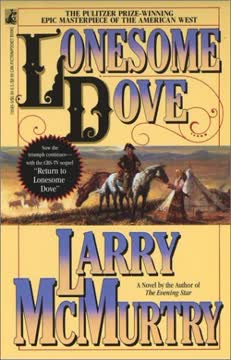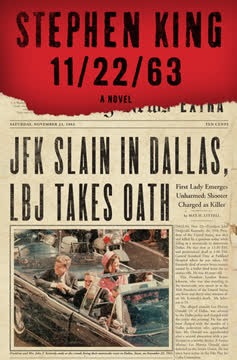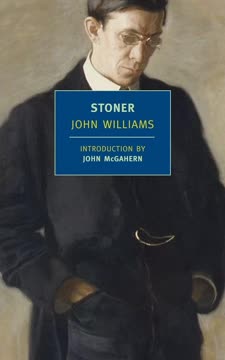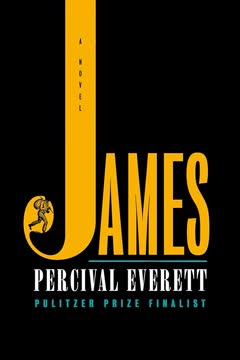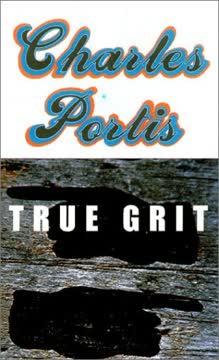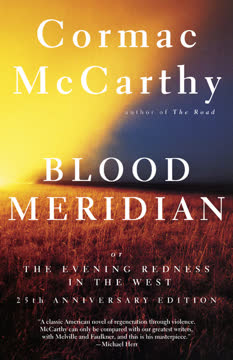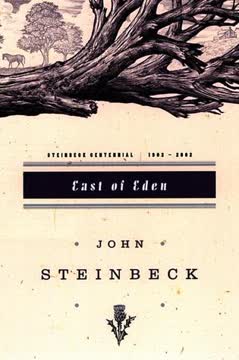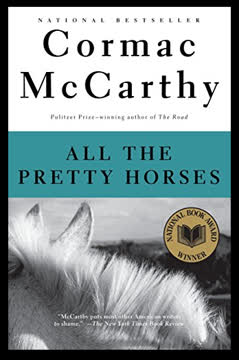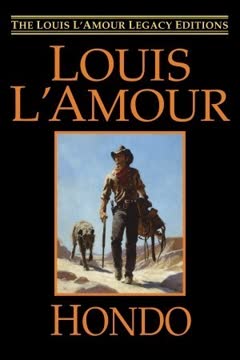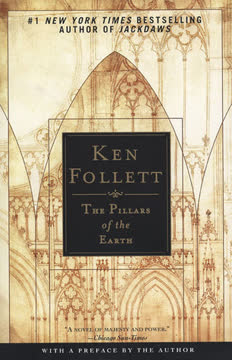Plot Summary
Restless Men, Fading Frontier
In the dusty border town of Lonesome Dove, former Texas Rangers Augustus "Gus" McCrae and Woodrow Call run the Hat Creek Cattle Company. Their days are filled with routine, bickering, and the slow passage of time. The threat of Comanches has faded, and the men are left with memories and a sense of restlessness. Beneath their banter lies a longing for one last adventure before the world they knew disappears forever.
A Wild Dream Ignites
The monotony is shattered when Jake Spoon, a charming but unreliable ex-Ranger, returns with stories of Montana—a land of green grass and opportunity. His tales ignite a spark in Call, who is weary of idleness and yearns for a new challenge. Gus is skeptical, but the idea of a cattle drive north begins to take hold, offering the men a chance to reclaim purpose and meaning.
Jake Spoon's Return and Reckoning
Jake's return is complicated: he's on the run after accidentally killing a dentist. His easy charm masks a history of drifting and trouble, and his presence stirs old memories and new tensions among the Hat Creek crew. Jake's talk of fortune and freedom is seductive, but his past—and the law—are never far behind, foreshadowing the chaos to come.
The Hat Creek Family Forms
The Hat Creek outfit is a makeshift family: Call, Gus, Deets (the wise black scout), Pea Eye (the loyal hand), Newt (the orphaned boy), and Bolivar (the eccentric cook). Each has their own reasons for joining the drive, but the promise of Montana unites them. Lorena, the town's only prostitute, dreams of escape, and Jake's promises give her hope. As the crew gathers supplies and horses, their bonds and tensions are revealed.
Lorena's Hope and Heartache
Lorena, beautiful and silent, is tired of her life in Lonesome Dove. Jake's attention and promises of San Francisco awaken hope in her, but their relationship is fraught with uncertainty. Lorena's longing for escape and Jake's need for comfort draw them together, but both are haunted by their pasts and unsure of their futures.
The Mexican Horse Raid
To fund their journey, the crew rides into Mexico to steal horses from Pedro Flores. The raid is tense and dangerous, a reminder of their Ranger days. Newt, desperate to prove himself, faces real danger for the first time. The successful heist provides the means to start the drive, but it also sets in motion a chain of consequences.
Strangers, Loss, and Laughter
During the raid, the crew encounters two lost Irishmen, Allen and Sean O'Brien, whose innocence and confusion provide comic relief. The Hat Creek crew takes them in, adding to their unconventional family. Yet, the randomness and danger of the frontier are ever-present, and not all will survive the journey.
The Montana Dream Takes Hold
With horses secured, Call becomes obsessed with the cattle drive. Gus is reluctant, but the momentum is unstoppable. The crew gathers cattle and hires hands, including Dish Boggett, who pines for Lorena. The dream of Montana becomes a shared goal, even as doubts and fears persist, and the reality of the journey looms.
The Great Cattle Drive Begins
With horses and cattle gathered, the crew sets out for Montana. The future is uncertain, the dangers real, but the promise of a new life drives them on. The relationships between the men, and between men and women, are tested and transformed as the great adventure begins.
Newt's Coming of Age
For Newt, the drive is a rite of passage. He faces fear, exhaustion, and the challenge of living up to the expectations of his surrogate fathers. The gift of a gun and responsibility are both a burden and a blessing. Newt's journey is one of self-discovery, as he learns what it means to be a man in a world where survival depends on courage and loyalty.
Blue Duck's Shadow
As the crew moves north, Blue Duck, the half-Comanche outlaw and son of Buffalo Hump, emerges as a force of chaos. His violence and unpredictability cast a shadow over the drive. The death of Buffalo Hump at Blue Duck's hands symbolizes the end of the old West and the rise of a more ruthless era.
Death on the Open Plains
The open plains, once a symbol of freedom, become a stage for relentless death. The crew faces sudden, brutal losses—of men and animals alike. The threat of outlaws, Indians, and the elements is ever-present. The journey becomes a gauntlet of violence and loss, forcing the men to confront their own mortality and the limits of their strength.
Lorena's Ordeal and Rescue
Lorena is kidnapped by Blue Duck and subjected to unspeakable brutality. Her ordeal is a harrowing portrait of the vulnerability of women on the frontier, but also of their strength. Gus's rescue of Lorena is not just a rescue from Blue Duck, but a rescue from despair. Their bond becomes one of the emotional cores of the novel, a testament to the endurance of the human spirit.
The Pursuit of Blue Duck
Gus, driven by justice and personal responsibility, pursues Blue Duck across the wild country. The pursuit is a confrontation with the darkness at the heart of the West. Joined by July Johnson, a lawman from Arkansas, Gus's chase is a meditation on the limits of justice and the cost of vengeance.
Blood, Loss, and the River
The journey north is marked by devastating losses—friends lost to violence, disease, and the unforgiving land. Gus is wounded in a fight with Indians, and his injury becomes a turning point. The river crossings, once symbols of progress, become reminders of the thin line between life and death. The men are forced to confront the price of their dreams and the cost of their loyalty.
Montana: Dreams and Disillusion
When the crew finally reaches Montana, the land is as beautiful as they imagined, but it is also empty and cold. The dream of a new beginning is shadowed by the losses they have suffered. The open range is closing, and the world they knew is vanishing. The cattle drive, once a symbol of hope, becomes a monument to the passing of an era.
The Price of Loyalty and Love
Throughout the journey, the crew is held together by bonds of loyalty and love—between friends, between men and women, between fathers and sons. These bonds are tested by hardship and loss. Call's sense of duty is both his strength and his curse; Gus's love for Clara and his compassion for Lorena are sources of both joy and pain. The price of loyalty is high, and the cost of love is often loss.
The Final Reckoning
The novel ends with a final reckoning—with the land, with the past, and with the self. Call, haunted by guilt and regret, undertakes a final journey to fulfill a promise to Gus. The survivors are left to make peace with what they have done and what they have lost. The story of Lonesome Dove is not just the story of a cattle drive, but the story of a world passing away, and the people who lived and died in it.
Characters
Woodrow Call
Call is the stoic, driven former Ranger whose sense of duty is both his strength and his curse. He leads the Hat Creek outfit with relentless determination, but his inability to express love or vulnerability isolates him from those around him, especially Newt, whom he cannot acknowledge as his son. Call's journey is one of increasing regret and self-reproach, culminating in his lonely pilgrimage to return Gus's body to Texas—a final act of penance and confrontation with the ghosts of his past.
Augustus "Gus" McCrae
Gus is the heart of the Hat Creek outfit, a man of humor, wisdom, and deep feeling. His compassion and courage are tested as he rescues Lorena and pursues Blue Duck. Gus's wounding and slow death become a meditation on mortality and the meaning of life. His love for Clara and kindness to Lorena reveal his depth. Gus faces death with wit and dignity, and his loss is the emotional climax of the novel, reverberating through all the survivors.
Jake Spoon
Jake's easy charm and inability to take responsibility for his actions lead to his downfall. His involvement with a gang of killers and his eventual hanging by his old friends is a tragic commentary on the fate of men who cannot adapt to the new world. Jake's promises inspire the drive, but his choices bring chaos and loss.
Newt Dobbs
Newt's journey is a classic coming-of-age story, set against the backdrop of the dying West. He is shaped by the men around him—Call's discipline, Gus's warmth, Deets's wisdom—and by the harsh realities of the drive. Newt's longing for recognition from Call is a source of both hope and pain. The losses he suffers force him to grow up quickly, and his inheritance of Call's horse and watch is a symbolic passing of the torch, though the lack of acknowledgment leaves him incomplete.
Lorena Wood
Lorena's journey from victim to survivor is one of the most powerful arcs in the novel. Her ordeal at the hands of Blue Duck is harrowing, but her rescue by Gus and her eventual decision to seek a new life are acts of agency and self-assertion. Lorena becomes a symbol of the resilience of women on the frontier, and her story is a testament to the possibility of healing after trauma.
Deets
Deets is the moral center of the crew, a man of quiet strength and deep loyalty. His death is one of the most devastating moments in the novel, a senseless loss that underscores the randomness of violence on the frontier. Deets's kindness to Newt and his competence as a scout make him irreplaceable, and his fate is a reminder of the fragility of life.
Pea Eye Parker
Pea Eye is the everyman of the crew, a simple, good-hearted cowboy who follows Call without question. His struggles with self-worth and his eventual decision to seek a new life reflect the changes sweeping the West. Pea Eye's loyalty is both his strength and his limitation, but his survival is a testament to the endurance of ordinary men.
Dish Boggett
Dish is the top hand, skilled and reliable, but hopelessly in love with Lorena. His unrequited love and rivalry with Jake provide humor and pathos. Dish's journey is one of learning to accept disappointment and find meaning in friendship and work.
Blue Duck
Blue Duck is the dark heart of the novel, a force of violence and destruction. His kidnapping of Lorena and his murder of innocents make him a symbol of the lawlessness and brutality of the frontier. Blue Duck's death is not a triumph of justice, but a reminder of the limits of law and the persistence of evil.
Clara Allen
Clara is Gus's lost love and a symbol of the new West. She is practical, intelligent, and fiercely independent. Her ranch in Nebraska is a haven for Lorena and a contrast to the chaos of the frontier. Clara's refusal to marry Gus, and her ability to survive and thrive on her own terms, make her one of the most compelling characters in the novel.
Plot Devices
The Cattle Drive as Epic Journey
The cattle drive is both the literal plot engine and a metaphor for the passage from the old West to the new. It brings together a diverse cast of characters, each with their own dreams and regrets, and forces them to confront the realities of violence, loss, and change. The drive is a crucible that tests and transforms everyone involved, and its end marks the end of an era.
The Frontier as Character
The landscape of the West is more than a backdrop—it is an active force in the story. Its beauty and danger shape the fates of the characters. The unpredictability of the land—its storms, rivers, and distances—mirrors the unpredictability of life and death on the frontier.
Violence and the Randomness of Death
The novel is marked by sudden, brutal deaths—of men, women, and children. Violence is not heroic, but senseless and often random. The deaths of Deets, Gus, and others are reminders of the fragility of life and the cost of the journey. The randomness of death is a central theme, challenging the myth of the West as a place of glory and adventure.
The Passing of the Old West
The novel is suffused with a sense of transition—the end of the open range, the coming of law, the fading of the Ranger way of life. The cattle drive is both a last hurrah and a funeral procession for the old West. The survivors must find a place in the new world or be left behind.
The Burden of Duty and Regret
Call's sense of duty is both his strength and his curse. His inability to express love or regret isolates him from those around him. The survivors are haunted by memories and regrets—over friends lost, opportunities missed, and the price of survival. The burden of duty is a central plot device, shaping the choices and fates of the characters.
Women's Suffering and Resilience
The novel does not romanticize the suffering of women on the frontier. Lorena's ordeal, Clara's independence, and the fates of other women are central to the story. Their resilience and agency are sources of hope, even in a world marked by violence and loss.
The Surrogate Family
The Hat Creek crew is a family of misfits, orphans, and outcasts. Their relationships—Call and Gus's partnership, Newt's longing for a father, the camaraderie of the hands—are central to the story. The plot explores what it means to belong, to lead, and to love in a world where blood ties are often absent or broken.
Fate, Free Will, and the Limits of Justice
The characters are constantly faced with choices—whether to stay or go, to love or leave, to fight or forgive. The plot is shaped by both the decisions they make and the forces beyond their control—nature, violence, history. The story asks whether we can shape our own destinies or are simply carried along by the currents of time.
Analysis
Through the epic journey of the cattle drive, McMurtry explores the longing for purpose, the pain of loss, and the complexity of love and loyalty. The West is not romanticized; it is a place of senseless violence, random death, and relentless change. The characters—flawed, vivid, unforgettable—are shaped by the land and by each other, their relationships as unpredictable as the frontier itself. The novel challenges the myth of Western glory, offering instead a vision of the West as a place of both cruelty and compassion, memory and hope. The women, especially Lorena and Clara, emerge as the true survivors, finding ways to endure and to hope. The children of the frontier inherit a world that is changing, but their survival is a sign that the story is not just one of endings, but of new beginnings. Lonesome Dove is not just the story of a cattle drive, but the story of a world passing away, and the people who lived and died in it—a timeless reflection on the cost of dreams and the burden of survival.
Last updated:
Review Summary
Lonesome Dove is a beloved epic Western novel that captivates readers with its vivid characters, particularly Augustus McCrae and Woodrow Call. The sprawling narrative follows a cattle drive from Texas to Montana, exploring themes of friendship, love, and the harsh realities of frontier life. Readers praise McMurtry's masterful storytelling, authentic dialogue, and ability to evoke the spirit of the Old West. While some find the book's length challenging, most agree that its richly developed characters and emotional depth make it a rewarding and unforgettable read.
Similar Books
Download PDF
Download EPUB
.epub digital book format is ideal for reading ebooks on phones, tablets, and e-readers.
